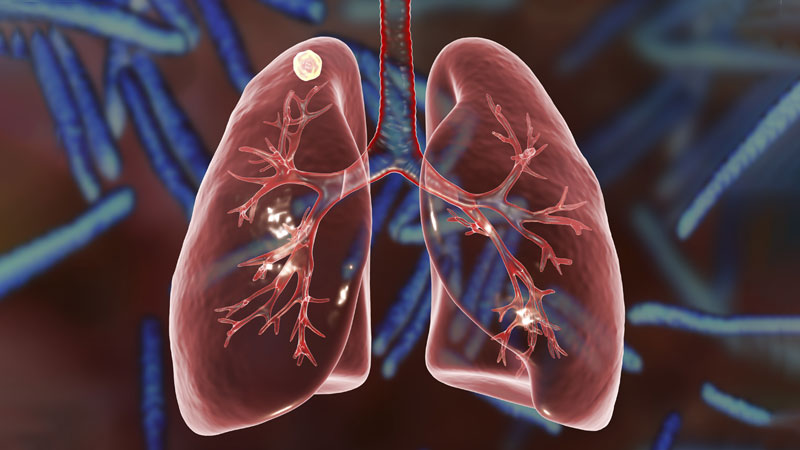Causes and Diagnoses
Causes and Diagnoses of Lung Nodules
Benign lung nodules can be caused by inflammation from a number of conditions. They include:
- Bacterial infections, such as tuberculosis and pneumonia
- Fungal infections, such as histoplasmosis, coccidioidomycosis or aspergillosis
- Lung cysts and abscesses
- Small collections of normal cells, called hamartoma
- Rheumatoid arthritis
- Sarcoidosis
Malignant lung nodules are the result of cancers that either start in the lungs or metastasize (spread) to the lungs from a cancer elsewhere in the body.
Diagnosing lung nodules
When a lung nodule is detected on a chest X-ray, your physician will decide how to evaluate it based on its size, location and appearance. Tests may include:
- Periodic computed tomography (CT) scans: If the nodule is more likely benign based on its appearance and small size, your physician may recommend periodic checks using a CT scan. These scans are usually repeated every three to six months for a two-year period. If the nodule does not change during that time, it is likely benign and needs no further treatment.
- Positron emission tomography (PET) scan: The PET scan will light up the nodule if it is rapidly growing or active. The brighter the nodule appears on the PET scan, the more likely that it is cancer. The PET scan also looks at the rest of the body and can identify if the cancer has spread.
- Biopsy: If the nodule is considered suspicious because of its size, shape or appearance on the CT scan, a biopsy (small tissue sample) may be taken to determine whether it is cancerous. A biopsy can be performed in different ways, including:
- Bronchoscope biopsy: If the nodule is near the airways, your physician can use a bronchoscope (a flexible tube with a small camera) that is inserted through your mouth or nose into the airways. Tiny instruments are then used to take a biopsy.
- Needle biopsy: If the nodule is near the edge of the lung, some cells can be removed from the nodule using a needle. Your skin will be numbed and a radiologist will obtain the cell samples by using a CT scan to guide the needle.
With either type of biopsy, the cells removed will be given to a pathologist to determine whether or not the sample contains cancer. Your physician will determine the next course of action based on the pathologist's findings.
The National Lung Cancer Screening Trial is the first scientific study providing clear evidence that the low-dose helical computed tomography (CT) scan is an effective screening technique. Annual screening for lung cancer is beneficial to those at high risk and significantly reduces death due to lung cancer in heavy smokers.


